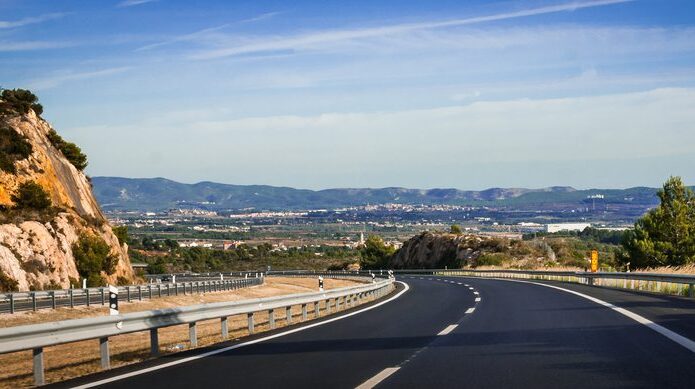
The spectre of country-wide toll roads will likely follow Spanish President Pedro Sánchez to the polls on Sunday for the country’s general elections.
Despite his recent denials, his government is indeed planning on widely tolling the highways as part of its financial plan submitted to Brussels in exchange for EU Next Generation funds. The EU Commission confirmed on Thursday what the government has dismissed as lies from their political opponents.
“We understand that the Spanish plan refers to a payment mechanism for the use of roads that will begin in 2024 in line with the principle of ‘whoever pollutes, pays,’” the Commission’s economic spokesperson Veerle Nuyts said at a press conference on Thursday.
The question of a pay-for-use or general toll on roads has hung over Spain for years, whether as an environmental measure or a means to address heavy public debt. It became an election issue on July 10th, when the main challenger for the presidency, Alberto Nuñez Feijóo, leader of the centre-right Partido Popular, brought the issue up to Sánchez during a televised debate. Sánchez roundly denied that his government had any plans to toll roads.
Nevertheless, a week later the director of the Directorate General for Traffic (DGT), Pere Navarro, revealed during an interview on Spanish television that the government did indeed plan to toll the country’s highways starting in 2024.
“What I can tell you is that next year, by imposition of Brussels, we will have to put tolls, Brussels demands it of us,” he said.
The Minister of Transport, Mobility and the Urban AgendaRaquel Sánchez then “categorically” denied the claim in statements to the press, and Navarro later walked back his statements.
However, on Thursday, the EU Commission confirmed that road tolls were indeed included in the Spanish government’s plan associated with the receipt of EU Next Generation funds.
The damaging statement comes a day after a final debate among presidential candidates.
The debate took place on Wednesday evening, July 19th, but only between three of the candidates. Notably missing was the most likely winner of the elections, Feijóo. He refused to participate in the debate organised by the publicly funded television station RTVE, leaving current socialist president Pedro Sánchez, current second vice-president Yolanda Diaz of the neo-communist Sumar party, and VOX leader Santiago Abascal to duke out their policy points and potential leadership positions.
Feijóo emerged the winner in the July 10th debate he held with just Sánchez. The following week, the spokesmen of all the national parties on the ballot debated.
Feijóo refused to join in the final debate on the grounds that it was an unfair fight as the two nationalist-separatist parties that Sánchez has leaned on for political support in parliament were not invited. With just the four parties present—the country’s two principal centrist parties and the next two major parties to the right and left respectively—the format could have posed more disadvantages than advantages to the Partido Popular, which is currently in the lead. As election results are predicted right now, both of the main parties will have to seek support to form a government. While Sánchez has made it clear that he would form another coalition government with left-wing Sumar and the support of nationalist parties, the PP has remained steadfast in its hope to govern alone, but without rejecting the possibility of a coalition with VOX.
During the debate, Diaz and Sánchez already formed a clear, if still unofficial coalition. Had Feijóo been present, he would have been in the awkward position of resisting being pigeon-holed into seeming to form a right-leaning bloc with VOX while also predictably having to fend off attacks from Abascal or blunt questions about a PP-VOX coalition.
The debate was little-watched anyway. At about 4 million viewers, it was the least-viewed televised debate in the country’s history. Spanish media is divided on who came out of it the winner; Sunday’s elections will be the true test.
